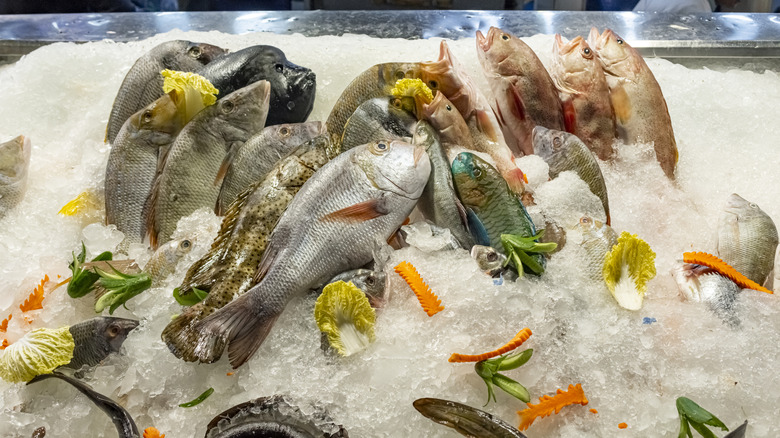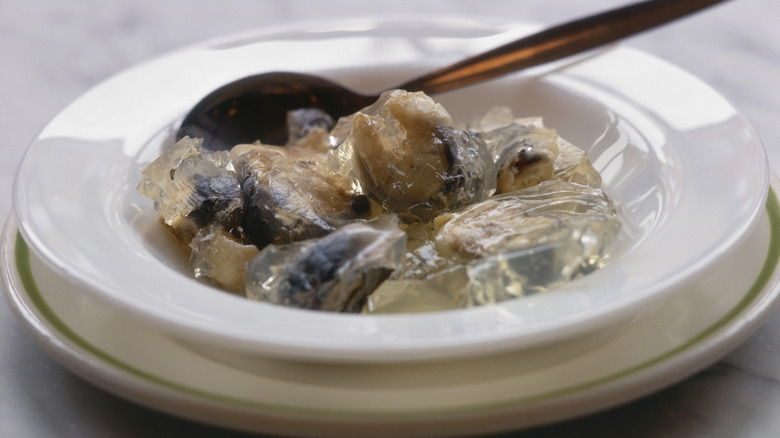The Type Of Fish You Really Shouldn't Order From A Seafood Restaurant
There are many menu items you may want to avoid ordering at seafood restaurants for an ocean of reasons, but one particular fish stands out: eel. Although eel isn't a standard offering at seafood joints in the United States, the famously long fish has been consumed by humans for thousands of years and remains popular fare across both Europe and Asia. In these places, the fish is used to make everything from English jellied eels to Japanese unadon. Eel is often praised for its delicate yet rich flavor and firm texture, and it pairs perfectly with the savory and sweet eel sauce (which, by the way, does not contain any actual eel).
Unfortunately, there's a multitude of quite compelling reasons not to eat eel. Historically, eel has been an abundant and cheap protein source, but eel populations have been dramatically spiraling for decades. European eels are now critically endangered and Japanese and American eels are classified as endangered. This means eating wild-caught eel is not only unsustainable, it's increasingly expensive. Eel regularly sells for over $100 a pound in Japan, and highly prized baby eels, known as angulas, are even pricier — we're talking thousands of dollars per pound.
Other reasons to not order eel
If sustainability issues and cost concerns aren't enough to convince you to avoid eel, there's another essential detail to keep in mind before ordering a plate of Portuguese fried eel or a hearty bowl of Italian eel stew: Eating improperly prepared eels could be deadly. Eel blood contains a toxin that can provoke muscle cramping (including, critically, cramping of the heart muscle) in humans and other mammals. When eel is cooked, this toxin is rendered harmless, but even a small amount of raw eel blood could kill you.
What's more, according to the Food and Drug Administration, many species of eel can carry parasites and harmful toxins which cause food poisoning and other unpleasant side effects if ingested. Moray eels in particular may contain high levels of ciguatoxins that cause ciguatera food poisoning. Ciguatoxins are not destroyed by cooking, and the unpleasant side effects of ciguatera (which include nausea, vomiting, and blurred vision) can last for months.
For sustainability, food safety, and budget reasons, it's probably best to avoid ordering eel at seafood restaurants. Luckily, there are plenty of affordable and delicious seafood options out there.

